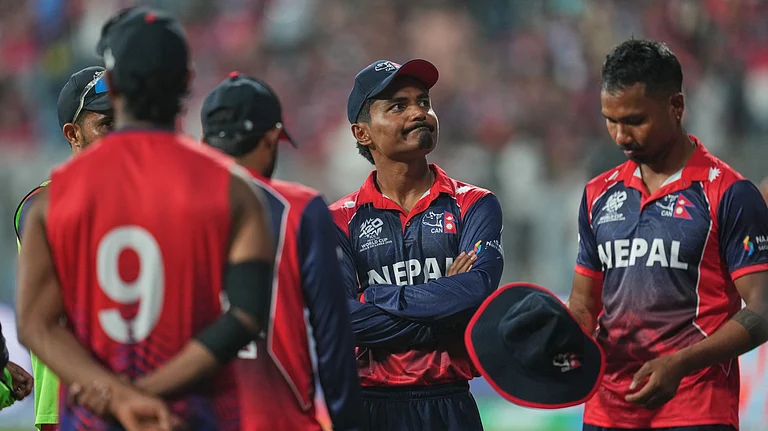The quote “a person without a city is either a beast or god,” attributed to Aristotle, defines the social life of refugees. In the modern nation-state system, where our political geography and epistemology are territorially trapped, we impose upon ourselves limits to see and make policies for those who are not having citizenship. Regarding refugees, the language we use becomes humanitarian or moral, if not political. But a robust political interpretation is necessary to understand and critically examine who refugees are and how they are created. Even though the Universal Declaration of Human Rights defines human rights as a given to those who are born as human, those who are stripped of their rights indicate the fault lines in that definition. Refugees are indeed among the examples of people who lost their rights because they were forced to leave the territory where they were citizens. Therefore, rather than merely being a human, what defines life with rights and dignity becomes citizenship which is defined by the sovereignty of the territorial state. In other words, it can be argued that in order to earn the status of a human being, one should belong to a group of people who are called citizens. And refugees can be easily made anything other than human beings in the interest of the nation or the sovereign state to which the people run for their lives. India’s 2019 Citizenship Amendment Act, which defines who can earn citizenship, provides adequate evidence for this argument. Even though the act went against the constitutional mandate (Article 14) and the basic components of the preamble that citizenship should not be awarded on the basis of religion, the government introduced the act and even criticised the previous governments for their failure to implement the same. The act includes people from six religions, such as Hindu, Muslim, Christian, Parsi, Jain and Sikh from Afghanistan, Bangladesh and Pakistan to access an accelerated pathway for citizenship, and the very same law does not cover Madhesis in Nepal, Rohingyas in Myanmar, Tamils in Sri Lanka, and Hui and Uyghurs in China, who have been facing persecution. What is evident from this is that for a person or a group of persons to get the status of a refugee, citizenship, asylum seeker or migrant, the final verdict should come from the nation-state or those at the helm of power.
The process of ‘othering’
The 1951 Refugee Convention is a key legal document and defines a refugee as: “Someone who is unable or unwilling to return to their country of origin owing to a well-founded fear of being persecuted for reasons of race, religion, nationality, membership of a particular social group, or political opinion” (Brown). Climate refugees are excluded from this definition, and in the coming decades, climate change will give rise to more refugees even though this article will not focus on climate refugees since their case differs from the definition of refugees in the 1951 Convention and 1967 Protocol. These definitions cannot be conceived naïve since by the end of 2022, there were 108 million people forcibly displaced worldwide, including 35 million refugees. Since refugees are deprived of the rights offered by their citizenship inside a political or territorial community, proper interrogation is necessary to decode what makes them leave the territory. The Kurds, people from Afghan, and Rohingyas are part of a large refugee group who are forced to live an alien life due to their political views as well as the process of ‘othering’. The techniques played out in Germany during the Nazi regime to create fear in both the majority and minority about their existence while simultaneously creating hope and faith in the state are followed by all the states mentioned above. The most crisis-ridden countries in Africa, like Sudan, South Sudan, Somalia, Central African Republic, are the result of their colonial past and a country-making process without proper consultation and deliberations with the natives. The scramble for resources and the making of new boundaries has made millions flee Africa from hunger and constant civil wars. The refugee crisis of this particular geography will not be solved until the world is ready to address and redress the past spectres.
Homo sapiens to Homo Sacer
The inclusion of a human in a political community comes with the immense possibility of their exclusion (the state of exception), and without conceding freedom to the sovereign and transforming it into the form of rights that is to be continuously maintained and protected by the authority, no individual could become a part of the territorial state. Therefore the territorial state also produces a population state in which people are subordinated to the sovereign through the regime of rights. Michel Foucault, in his lecture ‘Society Must Be Defended’, argues that the state places the protection of its population as the reason for its own existence, and it also uses different technologies to create discourses that strengthen this reason. The same sovereign does not care about those who are outside the state or refugees specifically in this case.
Philosopher Giorgio Agamben further elaborates on the Foucauldian idea in his notion of homo sacer. He divides human life into “bios”, which is a legitimate political life and “zoe”, which is a ‘bare’ animal life. This concept was followed by the notion of Homo Sacer, a Greek idea that means a person expelled from the political society. More specifically, a person who is reduced from bios to zoe through ‘force’. Homo Sacer, therefore, becomes the outsider or homo sapiens without rights. And the picture of Alan Kurdi depicts the same reality. Significantly, the beast-god connotation fits here as refugees are forced out of the population and territorial state and reduced to a bare life in which rights are stripped. This is caused by the internal contradiction of the very existence of the nation-state system, and it is likely to remain until there is a radical change in the discourse that governs the system.
(The author is a student of the School of International Relations and Politics, Mahatma Gandhi University, Kottayam, Kerala)





















